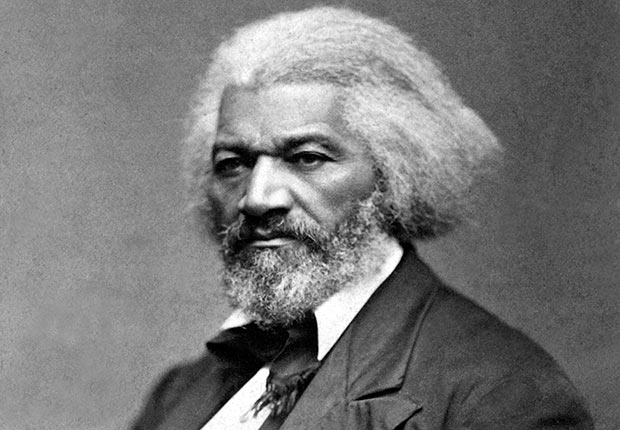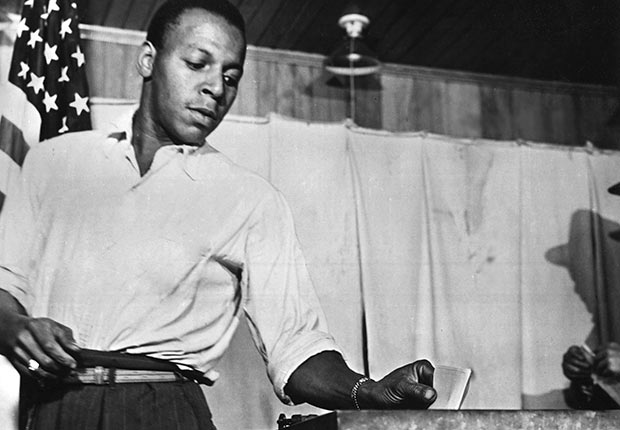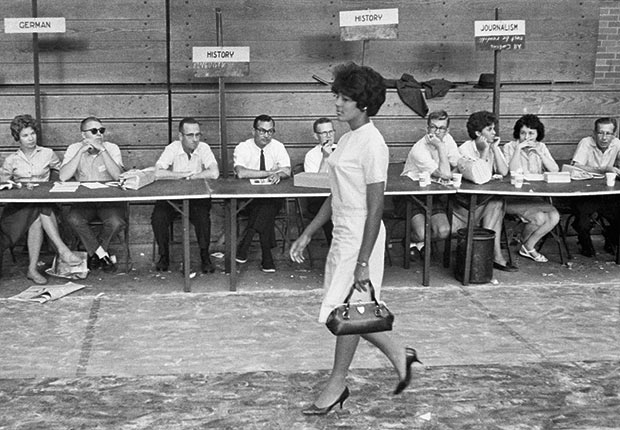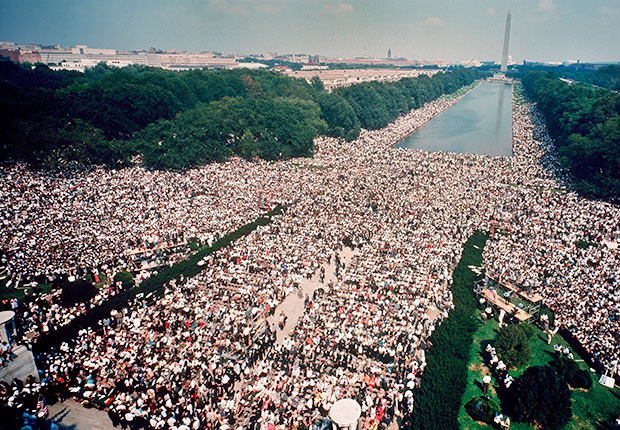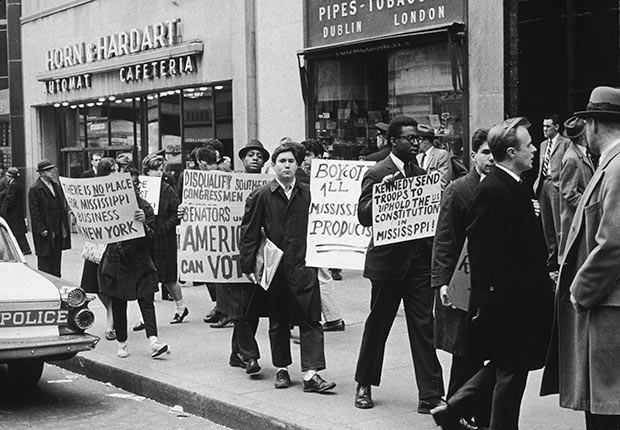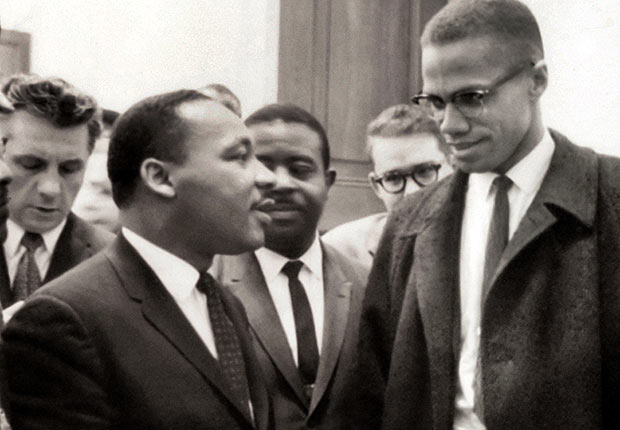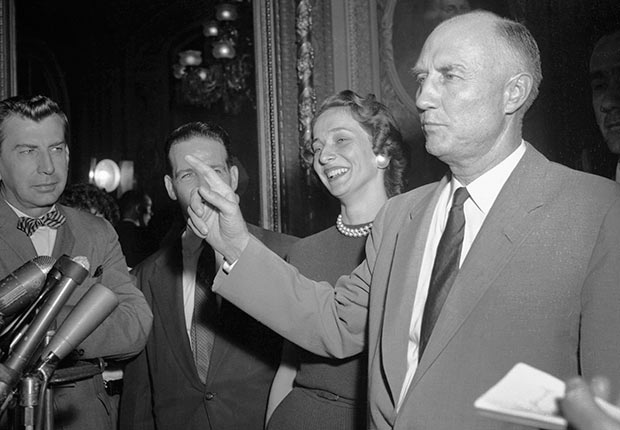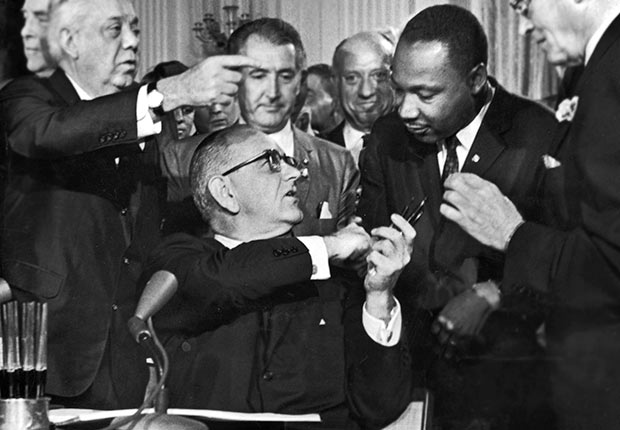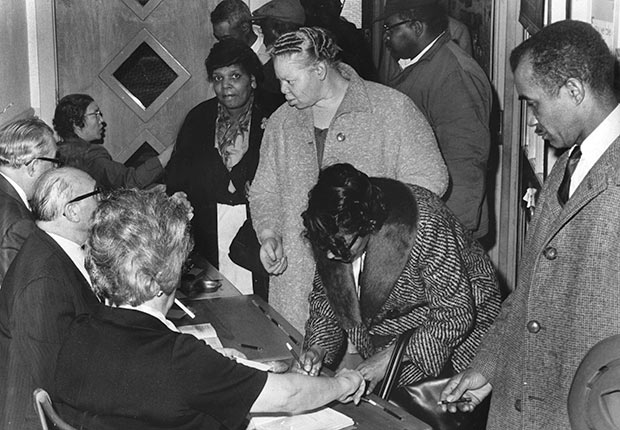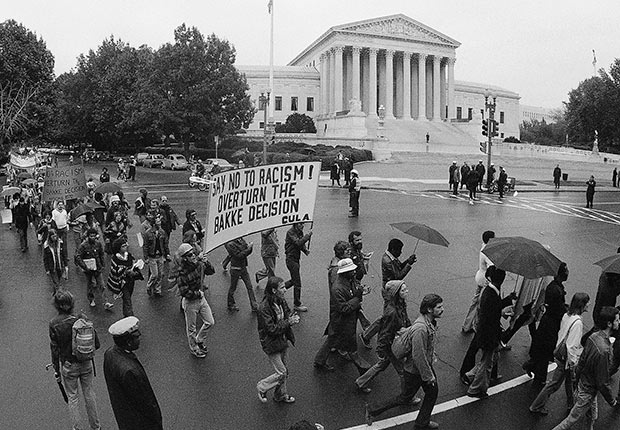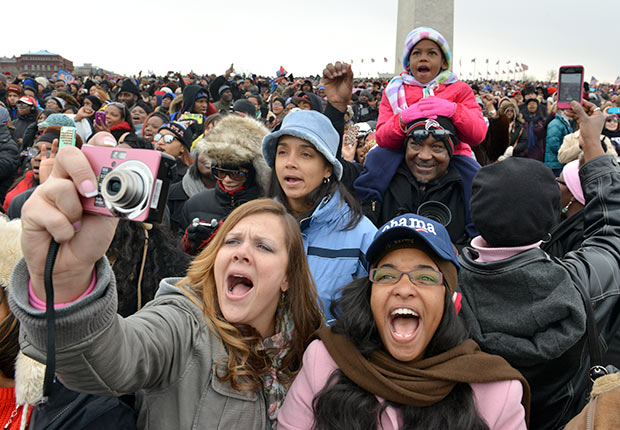The Impact of the Civil Rights Act
The history of how the law shaped equal rights for us all
by Steve Mencher
-
U.S. Mint
Golden Jubilee Silver Dollar
En español | In January 2014, a commemorative coin marks the 50th anniversary of the Civil Rights Act of 1964. Profits on sales of the coin aid the United Negro College Fund. The path to enactment of the 1964 law began a century earlier.
1 of 15 -
Getty Images
Civil Rights Act of 1866
This law granted rights of citizenship to all men, regardless of race. But for abolitionist Frederick Douglass, it fell short. Only guaranteed voting rights for all citizens, he said in 1866, could form a “wall of fire” that would make the country live up to its promise of universal freedom.
2 of 15 -
AARP Offer: Remember the past, help shape the future
Share your stories and help advocate for political support to protect your future. Join AARP to support living with dignity and purpose.
3 of 15 -
Mondadori Portfolio/Getty Images
‘Much Remains to Be Done’
Enacted in 1957, the first civil rights act since Reconstruction emphasizes voting rights and establishes the Civil Rights Division of the Justice Department, as well as the U.S. Civil Rights Commission. President Dwight Eisenhower, whose support of civil rights has been called “tepid,” promotes and signs the bill.
4 of 15 -
Bettmann/CORBIS
‘Time to Act’
On June 11, 1963, the day two African American students desegregate the University of Alabama, President Kennedy details his plan for legislation to end discrimination in public facilities, to end segregation in public education and to enhance protections for voting.
5 of 15 -
Time & Life Pictures/Getty Image
March for Jobs and Freedom
The organizers of the 1963 march, including A. Phillip Randolph and Martin Luther King Jr., believe that a great show of strength in the nation’s capital will boost support for civil rights legislation.
6 of 15 -
Getty Images
Unfinished Business
“No memorial oration or eulogy could more eloquently honor President Kennedy’s memory than the earliest possible passage of the civil rights bill for which he fought so long. … It is time now to write the next chapter, and to write it in the books of law.” – President Lyndon B. Johnson, five days after the JFK assassination.
7 of 15 -
Alamy
Standing Watch
When the Civil Rights Act of 1964 reaches the Senate floor, activists sitting in on the debate include Rev. King and Malcolm X. On March 26 at the U.S. Capitol, they meet for the first and only time.
8 of 15 -
Bettmann/CORBIS
Talking the Bill to Death?
Sens. Richard Russell, Strom Thurmond, Robert Byrd and others begin a filibuster that won’t end for more than two months. Thurmond (pictured) calls the act “unconstitutional, unnecessary and unwise.”
9 of 15 -
Hulton Archive/Getty Images
Signed at Last
In early June, Sen. Everett Dirksen (R-Ill.) engineers a compromise allowing debate to end. The bill prohibits discrimination on the basis of race, color, religion, sex or national origin. It passes June 19; Johnson signs it into law on July 2.
10 of 15 -
Getty Images
Voting Rights, With Teeth
The 1964 act doesn’t end violence against African Americans trying to vote in the South. Congress passes the 1965 Voting Rights Act empowering the government to target states and counties for special enforcement; a 2013 Supreme Court decision alters that power.
11 of 15 -
AP Photo
Equal Opportunity Still Elusive
The Equal Employment Opportunity Commission is founded July 2, 1965, to enforce the part of the 1964 act barring job bias based on race, color, religion, sex or national origin. In 2011 through 2013, about 100,000 charges are filed each year with the EEOC.
12 of 15 -
AP Photo/Charles Tasnadi
Affirmative Action
In 1978, the case of Allan Bakke, a white applicant to the University of California, Davis, medical school, splits the U.S. Supreme Court. Citing the 1964 act, the court rules against strict racial quotas, but allows schools some leeway in addressing historic discrimination in admissions.
13 of 15 -
Jahi Chikwendiu/The Washington Post/Getty Images
‘We Cannot Yet Be Satisfied’
Speaking on the 49th anniversary of the 1964 Civil Rights Act, U.S. Attorney General Eric Holder acknowledges progress but underscores the law’s unfulfilled promise: “We will never stop fighting to ensure equal rights, equal opportunity and equal justice for all.”
14 of 15 -
View More Slideshows
- Women leaders of the civil rights movement
- 9 nasty things to throw away today
- AARP Black Community: News and information relevant to African Americans
- Discounts for AARP Members — Save on shopping, dining, health, travel and more
15 of 15
Discounts for AARP Members — Save on shopping, dining, health, travel and more
Also of Interest
- Is heaven real? Do aliens exist? Here's what adults believe
- Slideshow: 12 ways to lose weight quickly
- Help bring relief to struggling seniors; find volunteer opportunities near you
- 12 Ways Millennials Differ From Boomers
- 9 Embarrassing Health Conditions
Visit the AARP Black Community page today


